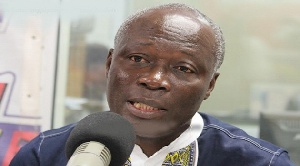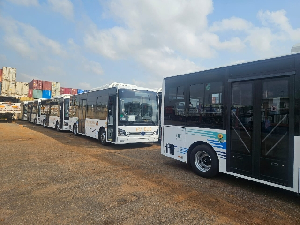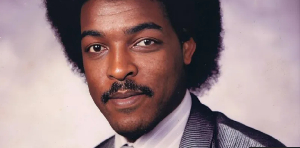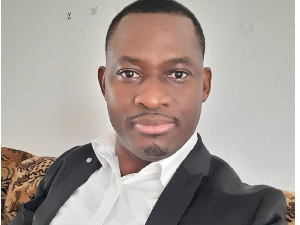Evergreen music icon, Akosua Adjepong Larbi has attributed the often miserable state of most musicians to their lack of self confidence and in their works.
Speaking on the Friday Personality Profile edition of Multi TV’s current affairs program PM EXPRESS, Akosua Adjepong noted that “some of us [musicians] don’t believe in ourselves [and in] what we do. They think without a producer they can never produce a song.”
According to her, this preconceived notion limits the amount of authority such musicians should have when dealing with their producers and rather pushes them to beg the producers for favours even though the works are their intellectual properties.
She noted that some even go to the extent of asking the producers to give them “whatever” they please without specifically stating how much they want in monetary terms for their creative works all in a bid to make their work popular on the market.
This attitude she noted was killing musicians.
“Some of us also think that coming on TV and making a hit is ok. So it’s like we don’t actually think of what the future is going to be like” she said adding that “now we’re recognising the mistakes we’ve done” so it will be better.
The “Born Again” hit maker whose first album “Frema” was recorded in the latter half of 1989 and released on January 1 1990 also noted that unlike music works produced in the 1990s and even earlier, most of the current crop of musicians do not take time to do a good job on their songs hence their songs do not enjoy much airplay making it difficult for them to enjoy royalties.
She noted that together with fellow musician, Ekow Micah, they have succeeded in establishing the first ever Music Council for the country which aims at serving the interest of musicians in the country.
“We’ve now registered a music council for Ghana, that’s the first time ever that we’re having a council like the Sports council. It will surprise you that we went to Benin for a conference and the people asked over 40 something years you’re now registering a music council for Ghana? ... but we’re working on it. We’ve registered it [and] it has been launched.”
Akosua who is the Vice President for the Music Council called on all musicians in the country to register with the council “so that whatever problem it is [they are facing] we can solve it because we’re dying poor.”
She cited an example of a musician who died and whose relatives came to the MUSIGA office to seek assistance to buy a casket to bury the artiste.
“You can imagine, the family of the musician who had died [and] didn’t have money to buy a casket to bury the musician. I mean it’s sad but that is going to change. Honestly, we’re going to fight this time, hard, because without music no one can live. Let’s be honest, when you go to funerals its music, election time its music, outdooring its music, party is music, wedding is music, and some of the lyrics in the songs can even change your life. So I think musicians should be well taken care of and respected because we do a lot and there is money in music but because we do not know we’re always been cheated.”
The energetic performer who has been in the music industry for 22 years said she has been able to make enough money from the industry, a feat she attributed to the fact that “from the beginning we knew what we were doing and I want the young ones to understand music [that] it’s not coming on stage and putting your trouser down there and going yo-yo.”
The former NAKOREX member explained to show host Nii Arday Clegg that: “People think that gospel is mentioning the name of God but with my latest album I want to prove something. With my song like “Me ye obaa”, I was preaching to the young ones. And when you talk about preaching it is the message that can change somebody’s life and “Me ye obaa” changed the lives of so many women and girls because of the message in the song.”
She explained the song was to help women appreciate the fact that they were wonderfully created by God because “some people will move from Kojo to Kwame and get pregnant and not know who the father is, now she stays home not thinking to learn to cook or wash or anything and when she gets married there’s a problem. This is a message that even when you for counseling they tell you that and I was preaching in the song. But people think that when you mention God or Jesus [then it] makes it gospel.”
She argued that a song like “Dabi dabi ebeye yie” can give someone hope about the future and “there are some messages that my Christian brothers and sisters should go and buy because there is something that a Bishop or Pastor will not tell you in the church but when you listen to the lyrics of some songs you will notice that this song is making an impact in my life.”
She explained that she decided to do the kind of music widely accepted as gospel music “because they never allowed me to sing “Me Ye Obaa” or “Born Again” in the church but I knew that there were some messages that people in the church needed to hear.”
“Now check this out” she said “when I started singing “Sum Nyame Na Wa Da Nase”, you wouldn’t believe it after singing that they will tell me “Akosua sing Frema, or sing Born Again” and I said wow you want me to sing Me Ye Obaa in church? Then I started singing it and someone said so this is what the song is about? So it is the message in the song that makes it gospel, it’s not necessarily mentioning God or Jesus.”
With that said, Akosua Adjepong served notice that her latest album titled “MY TIME” is set to cause a stir.
Although she did not let out much information about the album, she said it was a mix of songs that could pass for the average definition of gospel since she mentions God in them and others that bear the Akosua Adjepong trade mark of dishing out wise counsel.
The wife of a reverend minister, Akosua Adjepong Larbi has captured the hearts of many Ghanaians and she says she is presently working on using her influence to counsel women across the country.
This she intends to do by touring tertiary institutions in particular to have discussions with the women in there to help shape their lives alongside a television talk show known as GIRLS-GIRLS which discusses issues affecting mostly women.
Music of Wednesday, 21 September 2011
Source: Nii Akrofi Smart-Abbey/ Multi TV
















